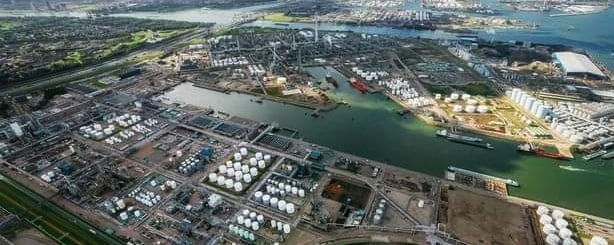The Data Safe House Rotterdam Foundation was recently formally established and the first exchange of information between major industrial companies and network operators is now under way.
This data exchange ensures that network operators always have the most up-to-date information on the sustainability plans of affiliated companies. This helps them ensure that the infrastructure for the energy transition is ready in time.
This way, the Data Safe House accelerates the transition. The Rotterdam approach can also be applied in other industry clusters.
Every company in refining, chemicals and energy is making plans to make their operations more sustainable. This changes the demand and supply of various energy carriers. This usually means increasing the use of (green) energy and hydrogen, and decreasing the use of oil, natural gas and coal.

In particular, network operators such as Stedin and TenneT need to know how much extra electricity is needed where and when. Investment in infrastructure involves billions of euros and these must be spent effectively and efficiently.
At the same time, companies want to be sure that the power can actually be delivered before making the decision to switch. Bottlenecks must be avoided. At the same time, companies do not want their competitors to know their exact plans unless they want to jointly develop a project.
Data exchange
To ensure this exchange of information between companies and network operators is optimal, confidential and efficient, the Port of Rotterdam Authority and Deltalinqs have founded the Data Safe House.
This is an autonomous and independent foundation that collects information from companies on their decarbonisation plans.
The companies decide who is allowed to see this information: they remain the ‘owners’ of the information at all times.
The main advantage for companies is that they no longer have to send the same information to different parties. This makes the process more efficient for them. Network operators get ‘bottom-up’ reliable, up-to-date information that has been verified by the Data Safe House manager.
This reduces the risk of network operators working with outdated, unreliable information.
The Data Safe House started in Rotterdam, but the idea is that it can be adopted by other industry clusters. Netbeheer Nederland has therefore indicated its support for the initiative.
By exchanging data nationwide through the Data Safe House, forecasts by national planning agencies, for example, can also become more reliable.
The Data Safe House is, in addition to a Smart Energy grant from the municipality of Rotterdam, funded by contributions from the participating parties. Thirteen parties have since joined.














